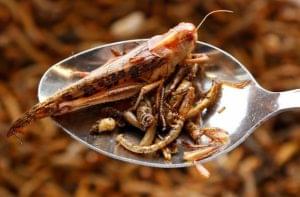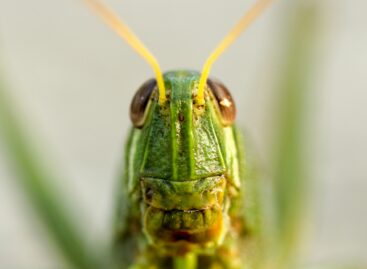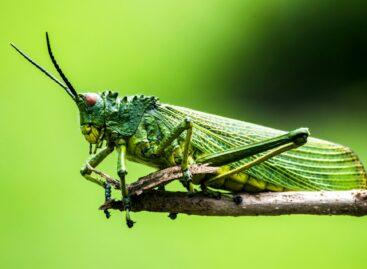In addition to Hungarians, Slovak millers also reject insects in food
The Slovak Milling Industry Association has joined the initiative of domestic bakers and clearly rejected the use of insects in flour and bakery products, Infostart reported. Despite the fact that European Union regulations already allow the use of certain insect species in the food industry, Slovak millers have decided to protect traditions.
 Members of the Milling Industry Association have officially confirmed that they do not mix insect-based ingredients into their products, thus supporting the previous position of the Slovak Association of Bakers, Confectioners and Pastry Producers. The bakers’ association, which has 520 members and plays a decisive role in the country’s bread supply, already expressed its opposition to the use of mealworms and other insects in March.
Members of the Milling Industry Association have officially confirmed that they do not mix insect-based ingredients into their products, thus supporting the previous position of the Slovak Association of Bakers, Confectioners and Pastry Producers. The bakers’ association, which has 520 members and plays a decisive role in the country’s bread supply, already expressed its opposition to the use of mealworms and other insects in March.
Milan Lapšanský, Secretary General of the Milling Industry Association, highlighted that Slovakia has a tradition of growing and processing wheat and other cereals for thousands of years. He said that the local food culture did not rely on insect-based food sources, unlike in the Southeast Asian region. According to Lapšanský, there is no reason for the appearance of worm larvae, grasshoppers or crickets in Slovak flours.
However, the European Union has also allowed the use of several insect species, including the flour beetle, the litter beetle, the short-winged cricket, the house cricket and the migratory locust, in the food industry, with certain concentration limits: for example, the addition of insect powder in flours is allowed in an amount of up to 20 percent.
The Secretary General emphasized that Slovak flour is a symbol of hospitality and tradition, and added that the aim of the alliance is to protect high-quality flour made from pure grain. He also expressed concern about the long-term effects of human consumption of insects, pointing out that the European Union does not need protein supplements and that sustainable solutions are available through the development of the agricultural sector.
Related news
Agroloop’s 13,000 square meter automated factory is a milestone in the insect protein manufacturing industry
🎧 Hallgasd a cikket: Lejátszás Szünet Folytatás Leállítás Nyelv: Auto…
Read more >Related news
Year-round consumer protection inspections – focus on examining discount prices and detecting customer deception
🎧 Hallgasd a cikket: Lejátszás Szünet Folytatás Leállítás Nyelv: Auto…
Read more >Hungarians don’t replace their furniture – JYSK research reveals a conscious, long-term planning market
🎧 Hallgasd a cikket: Lejátszás Szünet Folytatás Leállítás Nyelv: Auto…
Read more >KOMETA campaign: Put down your phone and experience Buona vita!
🎧 Hallgasd a cikket: Lejátszás Szünet Folytatás Leállítás Nyelv: Auto…
Read more >







